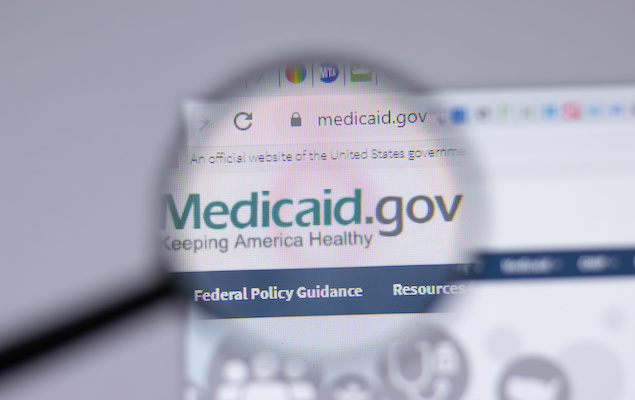ADA provides recommendations on Medicaid provisions in reconciliation legislation
Association calls for preserving adult dental benefits, continuity of coverage

The ADA commented on Medicaid provisions in the budget reconciliation legislation, including underscoring the importance of preserving adult dental benefits and recommending maintaining continuity of coverage by revising redetermination provisions.
The comments were addressed to House Energy and Commerce Committee Chair Brett Guthrie, R-Ky., and Ranking Member Frank Pallone, D-N.J., ahead of the committee’s May 13 markup. The budget reconciliation is a special process that allows certain spending bills to be passed with a simple majority vote in the Senate.
“By safeguarding adult dental benefits, ensuring provider viability and maintaining state flexibility, Congress can uphold Medicaid’s role in promoting preventive and cost-effective oral health care,” ADA President Brett Kessler, D.D.S., and Interim Executive Director Elizabeth Shapiro, D.D.S., J.D., said in the letter. “The ADA appreciates the committee’s attention to these issues and welcomes continued dialogue to protect and strengthen dental access for Medicaid beneficiaries.”
In the letter, Drs. Kessler and Shapiro highlighted the proposed legislation’s grave impact on dental care. Dental services for adults under Medicaid are currently optional benefits determined by each state, with more than 40 states providing some form of adult dental benefit. These services have helped reduce hospital emergency room use, improve chronic disease management and support individuals’ ability to work and care for their families, according to the Association.
“If Medicaid coverage is restricted or if enrollment verification measures cause eligible adults to lose coverage, the dental benefit in those states can be effectively nullified for many individuals – with serious consequences,” Drs. Kessler and Shapiro wrote.
They noted that the ADA Health Policy Institute estimates $1.9 billion in increased health care costs in the first year if adult dental benefits are cut, and highlighted the emergency department visit spikes following past reductions in states like Illinois and Massachusetts.
Drs. Kessler and Shapiro commented on provisions that would require states to submit enrollee data on a monthly basis; require states to establish Medicaid community engagement requirements for certain individuals; revise the payment limit for certain state directed payments; modify cost-sharing requirements for certain expansion individuals under the Medicaid program; and implement additional Medicaid provider screening requirements.
Drs. Kessler and Shapiro reiterated the Association’s view that every Medicaid beneficiary should have access to dental services through an adequately funded program, emphasizing that oral health care is not a luxury but a necessity.
“Certain provisions in the budget reconciliation draft could result in fewer individuals maintaining Medicaid coverage or introduce new challenges in accessing care. The ADA is concerned that these changes may have unintended consequences for the availability of dental coverage,” the letter said. “We respectfully urge the committee to consider alternative approaches that would help strengthen, rather than inadvertently weaken, the oral health safety net.”
The ADA provided several recommendations as the Energy and Commerce Committee considers finalizing the reconciliation package. These include:
- Ensuring continuity of coverage by revising verification and redetermination provisions.
- Preserving state flexibility in setting provider payment rates by clarifying that the proposed cap on state-directed payments does not apply to services like dentistry that lack a Medicare benchmark.
- Avoiding new financial barriers to care by exempting dental services from proposed cost-sharing requirements as such exemptions were proposed from primary and prenatal care.
- Supporting streamlined, efficient provider enrollment and screening by directing states to adopt tools for dental provider screening and credentialing, such as the Council for Affordable Quality Healthcare system.
For more information, visit ADA.org/Medicaid.



